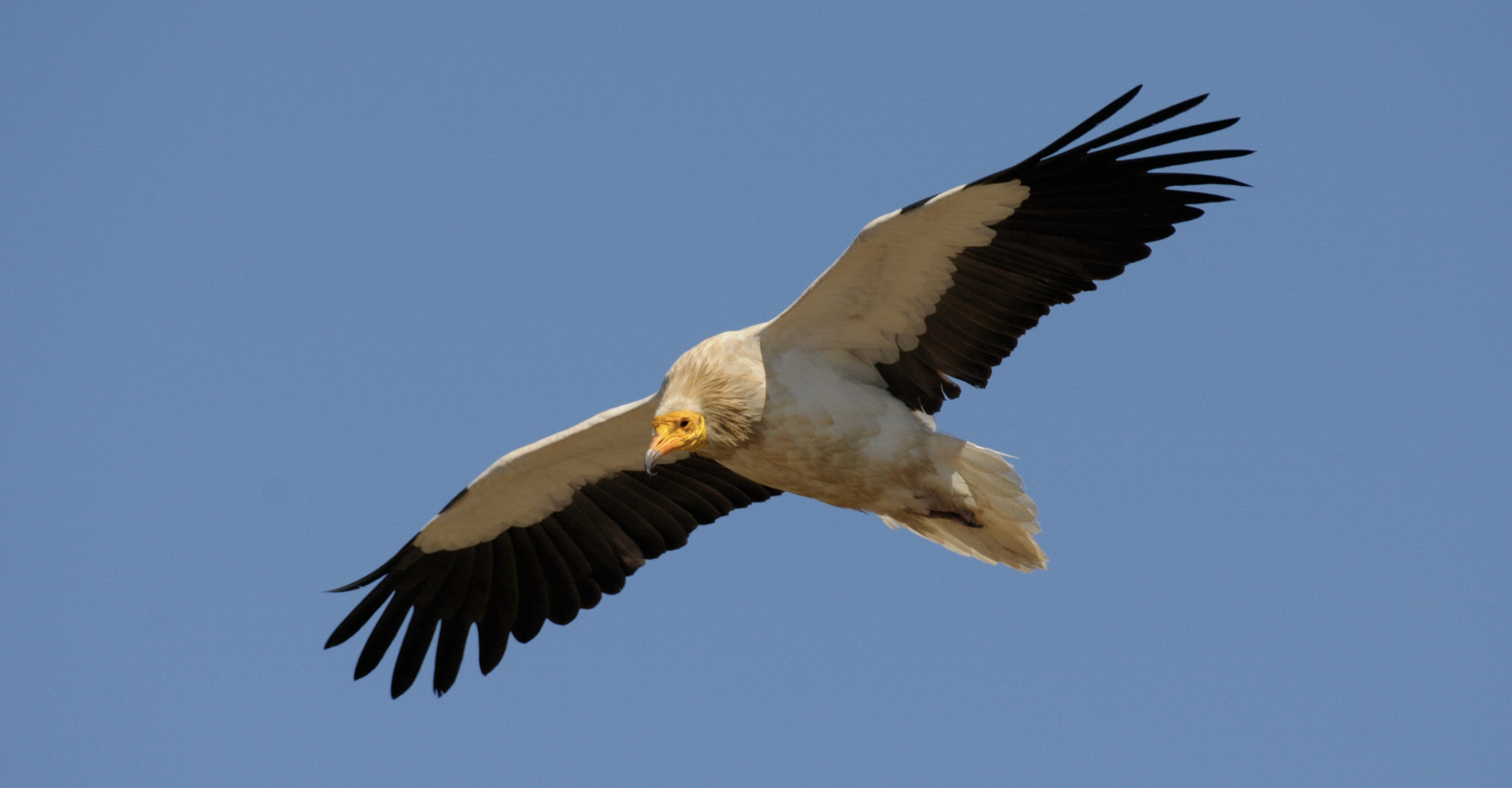
Not only do vultures play an essential role in nature, but they also represent significant cultural value to several communities. A study across nine countries in Europe, Asia and Africa depicts how Egyptian Vultures and other bird species are appreciated in different regions.
Method
A new study implemented within the framework of the Egyptian Vulture New LIFE project by the HOS/BirdLife Greece investigated the ethnographic aspects of the Egyptian Vulture along its flyway.
The team carried out the research in areas that hold Egyptian Vulture breeding territories in the Balkans (Albania, Bulgaria, Greece and the Republic of North Macedonia), in important migratory areas for the species (Turkey, Syria and Jordan) and its wintering areas (Niger and Nigeria). A total of 348 participants took part in the research from 22 different regions in 9 countries, while the information was gathered using focus groups and in-depth interviews in which the informants were asked to compare Egyptian vultures with other birds in a photo exercise. In Niger, market surveys were also organized to gather further information on the illegal killing of vultures for their use in belief-based practices.
Results
The results showed that birds, as a whole, are highly appreciated for their beauty and for triggering strong emotions in people and less for their use.
The species presented to the participants were storks, eagles, ravens/crows and vultures. Compared to other species, people liked Egyptian Vultures, vultures and storks more than eagles and ravens/crows.
Storks, for instance, are characterized as harmless, useful, beautiful and familiar. Ιn Africa, people value them because they announce the start of the rainy season while, in the Balkans, people appreciate them because they announce the start of spring. Eagles are identified as the most dangerous raptor and related to attacks to livestock, although people do appreciate raptors’ role to control reptiles, insects and rodents. Ravens and crows are associated with death, and they are referred to as ugly and bad omens.
In all countries, with the exception of Jordan, people were aware that vulture numbers are declining and that Egyptian Vultures, in particular, are either extinct or too few. Hunting (sometimes with no apparent justification) is blamed as the main cause for vultures’ decline, followed by the use of poison baits, declines of free-grazing animal husbandry and changes in carrion management. Habitat loss, land degradation or desertification, climate change or natural disasters, pesticides, pollution, disturbance in nesting/roosting sites, ignorance about species, human irresponsibility and lastly electrocution and collision are also mentioned. In Africa, the use of vulture parts for belief-based practices dominated people’s answers, although demand for EgyptianVvultures, in particular, was rather rare. In the Balkans, problems in the flyway and winter grounds were mentioned, even though some of the participants failed to list reasons behind the species’ decline. In Jordan and Albania, the level of knowledge and awareness about the Egyptian Vulture seems lower than in the rest of the countries.
The relation with death, after-death life and the supernatural are of key importance to understand the position of vultures in culture and their liminal placement between different worlds, and explains the use of vulture parts in belief-based practices in Africa. In comparison to the rest of the vulture species, the Egyptian Vulture is seen as a charismatic species: its white colour differentiates it from the rest of the vulture species. At least in the Balkans, it is beloved by people as a migrant bird, and it has a protagonist role in local Balkan folklore.
These facts, combined with its unfavourable conservation status, can be advantageously used to the species’ conservation.
Source: Egyptian Vulture New LIFE
More studies about the perception of Egyptian Vultures:
- Stakeholders perceptions of the endangered Egyptian vulture: Insights for conservation
- The Egyptian Vulture Neophron percnopterus on Socotra, Yemen: population, ecology, conservation and ethno-ornithology
Egyptian Vulture New LIFE

Working collaboratively projects like the Egyptian Vulture New LIFE aims to reinforce the Egyptian vulture population in their Europe’s easternmost range across the Balkans. By actively managing and restocking the population by releasing captive-bred birds the project will support the small Balkan population which number between 60 and 80 pairs across the whole region. The project is working to deliver conservation measures that eliminate major known threats such as illegal poisoning and electrocution in their summer breeding grounds. Monitoring the population closely using GPS transmitters will also help the project tackle the major threats Egyptian vultures face. The Egyptian Vulture New LIFE is a partnership of organisations, led by the Bulgarian Society for the Protection of Birds from 14 countries spanning Europe, the Middle East and Africa, to protect Egyptian vultures not only in Europe but all along their migratory flyway.





